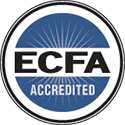Are Mom and Dad Still Safe Behind the Wheel?

A time of great anticipation in almost every American teen’s life is when they can get their driver’s license. Do you remember the family discussions leading up to the time prior to getting your own license? How excited you were for the benefits you would have once that driver’s license was in your hands? Your new license held your passport to freedom and new adventures.
Now let’s look at another family discussion centered on an elderly family member who may need to surrender their driver’s license, or at least have some restrictions imposed on their driving. The older person is facing the reverse of the excitement of the new licensed driver. They are perhaps losing their freedom to come and go as they choose; they face additional dependence on others.
Each of these categories of drivers — teen and senior — in the same ways poses a threat on the highways. The new driver is inexperienced and may be prone to feeling invincible. The senior driver may be experiencing physical and cognitive decline that poses driving threats as well. Senior drivers have more fatalities per mile than any age group except teenagers. Younger drivers crash more, but the crashes involving mature drivers are more likely to be fatal.
What do you do when you have concerns about the safety of an older person behind the wheel of a vehicle? This month, I’ll address reasons it may be time to consider asking a loved one to surrender their driver’s license. Next month, we’ll finish up with helpful suggestions about how to go about having that very difficult discussion.
So, as your loved one ages, how do you know when and why it’s time to reduce or eliminate a loved one’s driving time? According to Marlo Sollitto (AgingCare.com), physical and mental condition and ability are the first factors to consider.
- Good vision is a must when driving. There are several conditions that may make it unsafe to drive, including cataracts, macular degeneration, glaucoma, and diabetic retinopathy. Some conditions, such as cataracts and glaucoma, can be corrected surgically. In any case, be sure Mom and Dad are having regular eye exams.
- Driving takes dexterity, ability and strength in the arms, hands, legs and feet to control the vehicle at all times.
- If your loved one isn’t doing regular physical activity, driving is going to become difficult. Physical activity helps to maintain or build strength and agility.
- Patients with diagnosed dementias can become disoriented. Those with diabetes could fall into a coma. Your loved one’s physician can advise of such possible problems and risks.
- Familiarize yourself with your loved one’s medications. All prescription drugs have side effects. Are any of these side effects going to interfere with their ability to drive, such as drowsiness? A patient taking several different prescription drugs, particularly if they are prescribed by different doctors who don’t have updated knowledge of other drugs being taken, may experience side effects caused by conflicting drugs.
Is it time for Mom or Dad to give up the keys? According to Sollitto, here are some hints for determining their ability to drive:
- Ride with your loved one to observe his or her driving skills. Specifically look for: ability to control the vehicle, attention to surroundings, staying within the lane, how turns are handled, driving speed, and ability to scan from left to right. Notice sensitivity to glare and anxiety or confusion while driving.
- Check the outside of your loved one’s car for dents or scrapes.
Accompany Mom or Dad at least once to every different health provider, and have him or her sign a release form naming you as one with whom they can share all medical information without violating federal confidentiality laws. If your loved one is on Medicare, you can check the Explanation of Benefits (EOB) statements he or she receives after each medical visit or payment. This will ensure that you are aware of every medical service involved. These steps will guarantee that you can ask questions and express concerns privately as well as seek professional assistance.
If you determine that your mom or dad is still capable of driving, suggest they enroll in a mature driving course to keep them as safe as possible. The course may even qualify your parent for a discount on auto insurance.
It’s important to be mindful of your senior loved one’s driving ability. But it’s just as important to be mindful that your mom and dad have the same aspirations for independence as you. Next month, we cover how to approach the very delicate conversation when you feel they’re no longer safe behind the wheel.
About the author: Ann Thompson is Vice President for Member Services at Advent Christian Village, a post she has held since 2009. In this capacity, she is responsible for all programs and services for ACV’s members, including Social Services. Prior to her tenure at ACV, she spent 20 years as Administrator at Cathedral Residences in Jacksonville, Florida.



